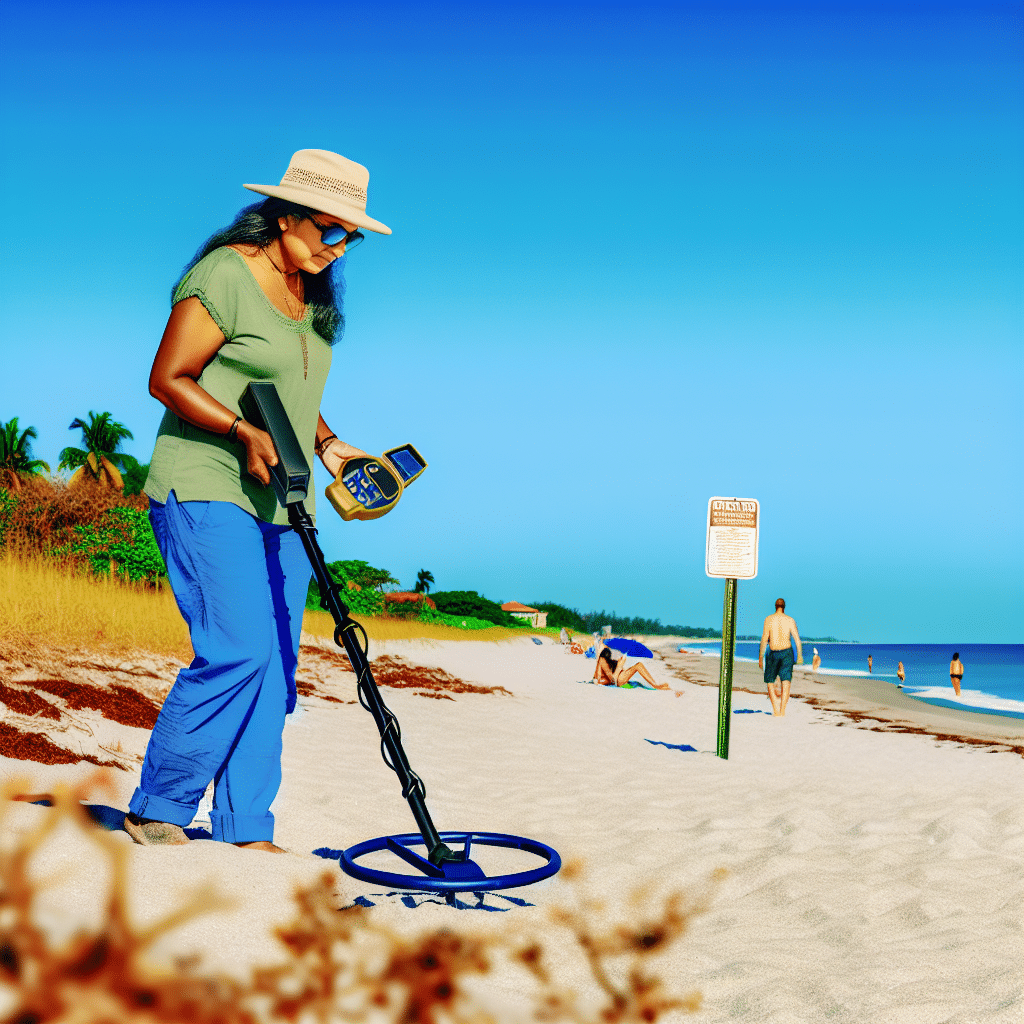Exploring the sunshine state with a metal detector in hand can be an exciting and rewarding hobby. Florida, with its rich history and expansive coastlines, offers a plethora of opportunities for uncovering unique artifacts and treasures. However, before you embark on your treasure-hunting adventures, it’s crucial to be well-versed in Florida metal detecting laws to ensure you’re detecting legally and responsibly.
Why Are Metal Detecting Laws Important?
Laws governing metal detecting are implemented to protect historical sites, preserve archaeological integrity, and ensure public lands are maintained for future generations. In Florida, these regulations are particularly stringent due to the state’s extensive and significant historical and archaeological resources. Without these laws, valuable artifacts and sites could be damaged or lost forever.
What Are Florida Metal Detecting Laws?
Metal Detecting on Public Lands
One of the most important aspects of Florida metal detecting laws is the regulation concerning public lands. Public lands, including state parks, beaches, and historic sites, are often the primary areas where hobbyists look to explore. However, metal detecting on these lands is not always straightforward.
– **State Parks:** Florida’s state parks are managed by the Florida Department of Environmental Protection (DEP). Metal detecting is generally prohibited in state parks to protect natural and cultural resources. Exceptions may exist for certain areas like beaches, but a permit is usually required. Contact the specific park office for detailed regulations before you begin.
– **Beaches:** While Florida’s beautiful beaches are popular spots for metal detecting, regulations can vary by county and municipality. Some areas may require permits, while others may have designated metal detecting zones. It’s essential to check with local authorities to understand the specific rules for each beach.
– **Historic Sites:** State and federally designated historic sites are typically off-limits for metal detecting. These areas are protected to preserve the historical significance and to prevent the disturbance of archaeological resources.
Metal Detecting on Private Property
If you wish to metal detect on private property, you must obtain explicit permission from the property owner. Trespassing without permission is illegal and can result in serious consequences. Always carry written consent in case you need to prove you have the owner’s approval.
Permits and Permissions: What Do You Need?
When it comes to Florida metal detecting laws, obtaining the right permits and permissions is crucial. As mentioned earlier, certain public lands may require permits, and securing these should be your first step.
– **State Park Permits:** If a state park allows metal detecting, you’ll need to apply for a permit through the Florida DEP or the specific park’s office. Keep in mind that permits may come with specific conditions and restrictions.
– **Local Beach Permits:** Check with local city or county offices to determine if a permit is needed for metal detecting on beaches. Regulations can vary widely, so it’s important to do your research ahead of time.
– **Written Permissions for Private Land:** Ensure you have clear, written permission from any private landowner before starting your hunt. This protects you legally and shows respect for the property owner.
Ethical Guidelines for Responsible Metal Detecting
Abiding by Florida metal detecting laws is just one part of being a responsible detectorist. Ethical guidelines further ensure that the hobby remains sustainable and respectful of our historical heritage. Here’s how you can be an ethical metal detectorist:
– **Respect Historical Sites:** Even if you’re not aware of the laws, avoiding recognized historical and archaeological sites is essential. Disturbing such areas can damage the integrity of our collective heritage.
– **Fill Your Holes:** When digging for treasures, always refill any holes you create. Leaving open holes can be hazardous for others and negatively impacts the environment.
– **Carry Out Trash:** If you unearth any trash or debris, dispose of it properly. This helps maintain the beauty of the detecting area and demonstrates respect for the environment.
– **Report Significant Finds:** If you discover items of historical, archaeological, or monetary value, report them to the appropriate authorities. Certain artifacts, particularly those of cultural significance, may be protected by law.
Conclusion
Embarking on a metal detecting adventure in Florida can be a thrilling pastime, offering the chance to uncover hidden artifacts and learn more about the state’s rich history. To do so responsibly, make sure you’re well-informed about Florida metal detecting laws. By understanding and adhering to these regulations, obtaining necessary permits, and following ethical guidelines, you can enjoy your hobby while contributing positively to the preservation of Florida’s historical and archaeological treasures.
Happy detecting!




